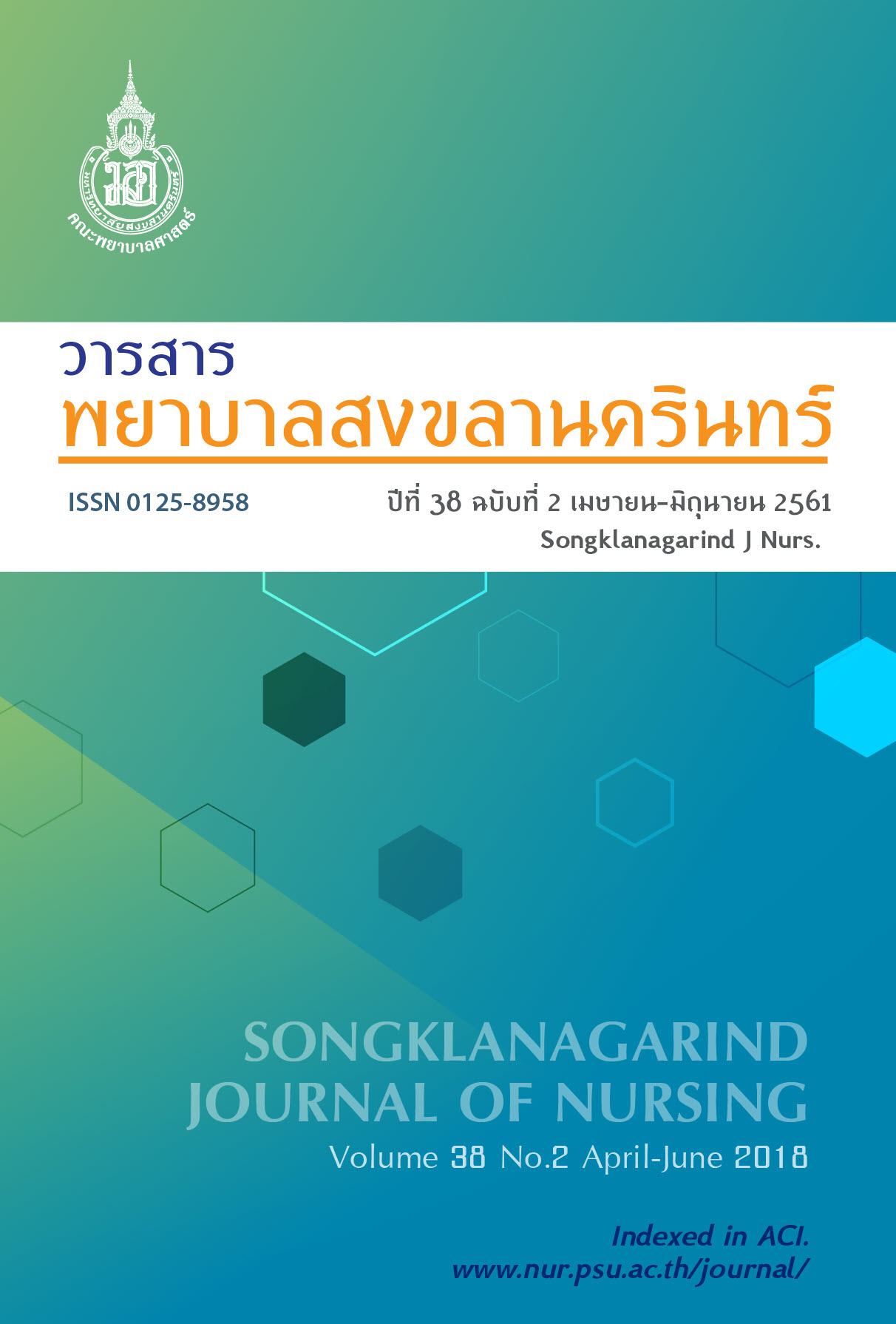Executive Function Training Programs for Stroke Patients with Cognitive Impairment: Literature Review
Main Article Content
Abstract
Cognitive impairment is an important problem in ischemic stroke patients. The impairment affects
the physical and psychological not only of the patients but also the caregivers, family members. It is the
economic burden of society and country. Cognitive function is an essential component based for learning,
performing basic life skills and rehabilitating after the stroke. Cognitive rehabilitation should be early initiation,
otherwise, it will progress to be as post stroke dementia. Among the post stroke cognitive impairment, the
executive function is mostly important. It is the higher cognitive process controlling both of the basic and
advanced cognitive activities including decision making, planning, management, problem solving and expressing
the appropriate behavior to the situation or environment. Thus, the executive function training after stroke is
very essential for higher level of cognitive functioning. From the clinical problem and the literature review,
the author found that the executive training programs aimed to enhance the post stroke cognitive function
were beneficial and individually suitable for each patient. However, there was limited information from the
studies in Thailand. This review will provide more information for nurses and heath care team about the
appropriately executive training program to improve the cognitive function after stroke in order to have the
quality of life among the ischemic stroke patients.
Article Details
References
2. Bureau of Policy and Strategy. Public health statistic A.D.2015. Bangkok: Samcharoen Panich. 2016. Thai.
3. Bureau of Non Communicable Disease. Annual report 2016 NCD. Bangkok: The War Veterans Organization of Thailand. Under Royal Patronage of His Majesty The King. 2016. Thai.
4. Kulkantrakorn K. Modern neurology. Bangkok: Proundpress; 2010. Thai.
5. Iadecola C. The pathobiology of vascular dementia. Neuron. 2013; 80(4): 844-66. doi: 10.1016/j.neuron.2013.10.008
6. Sun JH, Tan L, Yu JT. Post-stroke cognitive impairment: Epidemiology, mechanisms and management. Ann Transl Med. 2014; 2(8): 80. doi: 10.3978/j.issn.2305-5839.2014.08.05
7. Gorelick PB, Scuteri A, Black SE, et al. Vascular contributions to cognitive impairment and dementia: A statement for healthcare professionals from the American heart association/American stroke sssociation. Stroke. 2011; 42(9): 2672-713. doi: 10.1161/STR.0b013e3182299496
8. Cumming TB, Marshall RS, Lazar RM. Stroke, cognitive deficits, and rehabilitation: Still an incomplete picture. Int J Stroke. 2013; 8(1):38-45. doi: 10.1111/j.1747-4949.2012.00972.x
9. Al-Qazzaz NK, Ali SH, Ahmad SA, et al. Cognitive impairment and memory dysfunction after a stroke diagnosis: A post-stroke memory assessment. Neuropsychiatr Dis Treat. 2014; 10:1677-91. doi: 10.2147/NDT.S67184
10. Jokinen H, Melkas S, Ylikoski R, et al. Post-stroke cognitive impairment is common even after successful clinical recovery. Eur J Neurol. 2015; 22(9): 1288-94. doi: 10.1111/ene.12743
11. Caratozzolo S, Mombelli G, Riva M, et al. Dementia after three months and one year from stroke: New onset or previous cognitive impairment?. J Stroke Cerebrovasc Dis. 2016;25(11): 2735-45. doi: 10.1016/j.jstrokecerebrovasdis. 2016.07.027
12. Carod-Artal J, Egido JA, González JL, Varela de Seijas E. Quality of life among stroke survivors evaluated 1 year after stroke. J Am Heart Assoc. 2000; 31(12): 2995-3000.
13. Garand L, Dew MA, Eazor LR, et al. Caregiving burden and psychiatric morbidity in spouses of persons with mild cognitive impairment. Int J Geriatr Psychiatry. 2005; 20(6): 512-22.
14. Edwards JD, Jacova C, Sepehry AA, et al. A quantitative systematic review of domain-specific cognitive impairment in lacunar stroke. Neurology. 2013; 80(3): 315-22. doi: 10.1212/WNL.0b013e31827deb85
15. Leys D, Hénon H, Mackowiak-Cordoliani M-A, et al. Poststroke dementia. The Lancet Neurology. 2005; 11(4): 752-9. doi: 10.1016/S1474-4422(05)70221-0
16. Hurford R, Charidimou A, Fox Z, et al. Domain-specific trends in cognitive impairment after acute ischaemic stroke. J Neurol. 2013; 260(1): 237-41. doi: 10.1007/s00415-012-6625-0
17. Gorelick PB, Counts SE, Nyenhuis D. Vascular cognitive impairment and dementia. BiochimBiophys Acta.2016; 1862(5): 860-8. doi: 10.1016/j.bbadis.2015.12.015
18. Stuss DT, Alexander MP. Executive functions and the frontal lobes: A conceptual view. Psychol Res. 2000; 63(3-4): 289-98.
19. Alvarez JA, Emory E. Executive function and the frontal lobes: A meta-analytic review. Neuropsychol Rev. 2006; 16(1): 17-42. doi: 10.1007/s11065-006-9002-x
20. Munkhetvit P. Occupational therapy interventions for persons with cognitive-perceptual dysfunction. 2nd ed. Chiangmai: Darawan; 2010. Thai.
21. Zinn S, Bosworth HB, Hoenig HM, et al. Executive function deficits in acute stroke. Arch Phys Med Rehabil. 2007; 88(2): 173-80. doi: 10.1016/j.apmr.2006.11.015
22. Polit DF, Beck CT. Nursing research: Generating and assessing evidence for nursing practice. Philadelphia: Lippincott Company. 2012.
23. Poulin V, Korner-Bitensky N, Dawson DR, et al. Efficacy of executive function interventions after stroke: A systematic review .Top Stroke Rehabil. 2012; 19(2): 158-71. doi: 10.1310/tsr1902-158
24. Poulin V, Korner-Bitensky N, Bherer L, et al. Comparison of two cognitive interventions for adults experiencing executive dysfunction post-stroke: A pilot study. Disabil Rehabil. 2017; 39(1): 1-13. doi: 10.3109/09638288.2015.1123303
25. Skidmore ER, Butters M, Whyte E, et al. Guided training relative to direct skill training for individuals with cognitive impairments after stroke: A pilot randomized trial. Arch Phys Med Rehabil. 2017; 98(4):673-80 .doi: 10.1016/j.apmr.2016.10.004
26. Spikman JM, Boelen DH, Lamberts KF, et al. Effects of a multifaceted treatment program for executive dysfunction after acquired brain injury on indications of executive functioning in daily life. J Int Neuropsychol Soc. 2010; 16(1):118-29.
27. Zucchella C, Capone A, Codella V, et al. Assessing and restoring cognitive functions early after stroke. Funct Neurol. 2014: 29(4):255-62.
28. Khanthee R, Panyamee Dhippayom J, Munkhetvit P. Effects of cognitive training program on cognitive abilities in stroke patients. Bulletin of Chiang Mai Associated Medical Sciences, 2016;49(3): 298-306. Thai.
29. Li B, Zhu X, Hou J, et al. Combined cognitive training vs. Memory strategy training in healthy older adults. Front Psychol. 2016; 7: 834. doi: 10.3389/fpsyg.2016.00834
30. Langer N, von Bastian CC, Wirz H, et al. The effects of working memory training on functional brain network efficiency. Cortex. 2013; 49(9): 2424-38. doi: 10.1016/j.cortex.2013.01.008
31. Chapman SB, Aslan S, Spence JS, et al. Neural mechanisms of brain plasticity with complex cognitive training in healthy seniors. Cereb Cortex. 2015;25(2):396-405. doi: 10.1093/cercor/bht234


